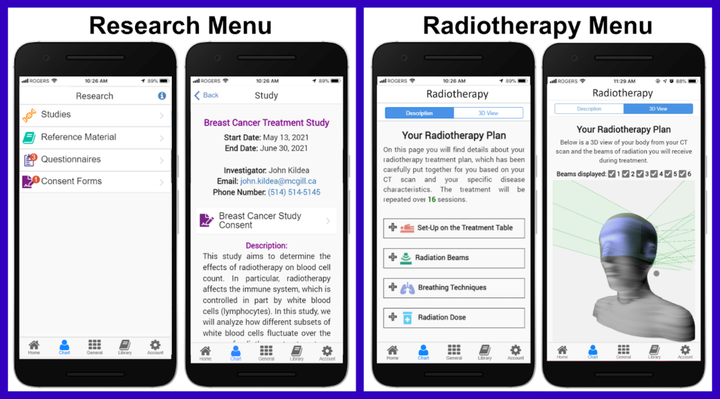Empowered Patients, Informed Research - A pilot project for radiotherapy data donation using the Opal patient portal
 Image credit: Kayla O’Sullivan-Steben
Image credit: Kayla O’Sullivan-StebenAbstract
Introduction: Artificial intelligence is increasingly prevalent in radiation oncology; however, such research requires large amounts of real-world data from varied patients. While these data exist, they are often legally unreachable and spread across multiple institutions, making them largely inaccessible to researchers. Moreover, patients would benefit from having better access to their data, as education about one’s treatment leads to reduced anxiety. This project addresses both issues by giving patients control over their radiotherapy data. The goal is to create a patient-centric data donation platform that will engage and empower radiotherapy patients to contribute to research. Methods: Following a participatory stakeholder co-design approach, data donation was facilitated by the addition of two JavaScript interfaces to the Opal patient portal app (opalmedapps.com). First, patients were given access to their radiotherapy data with the creation of a radiotherapy module that loads DICOM-RT files. Second, self-managed study registration with patient consent was enabled by the addition of a research menu. Results: The radiotherapy module presents a customized explanation of a patient’s treatment plan based on their treatment parameters. It also displays an interactive 3D rendering of the patient’s body and planned treatment beams for visualization. By presenting this complex data in an easily understood manner, it is anticipated that patients will be better prepared for their radiation treatment and better informed about the usefulness of sharing these data with researchers. The research module lists information about ongoing studies, data requests, and electronic consent forms. Ultimately, patients who consent to a given study can specify which data they share, answer questionnaires from researchers, and receive important updates about the studies they join. Conclusions: A novel infrastructure was created in Opal to facilitate data donation and recruit radiotherapy participants for research by empowering patients through education and control of their health data. This platform has the potential to further Big Data efforts in medical research. Sources of Funding: The project is funded by the RI-MUHC/MUHC Foundation Trottier-Webster Award for Innovation. Kayla O’Sullivan is supported by the Fonds de recherche du Québec Nature et technologies and the Ministère de la Santé et des Services sociaux.